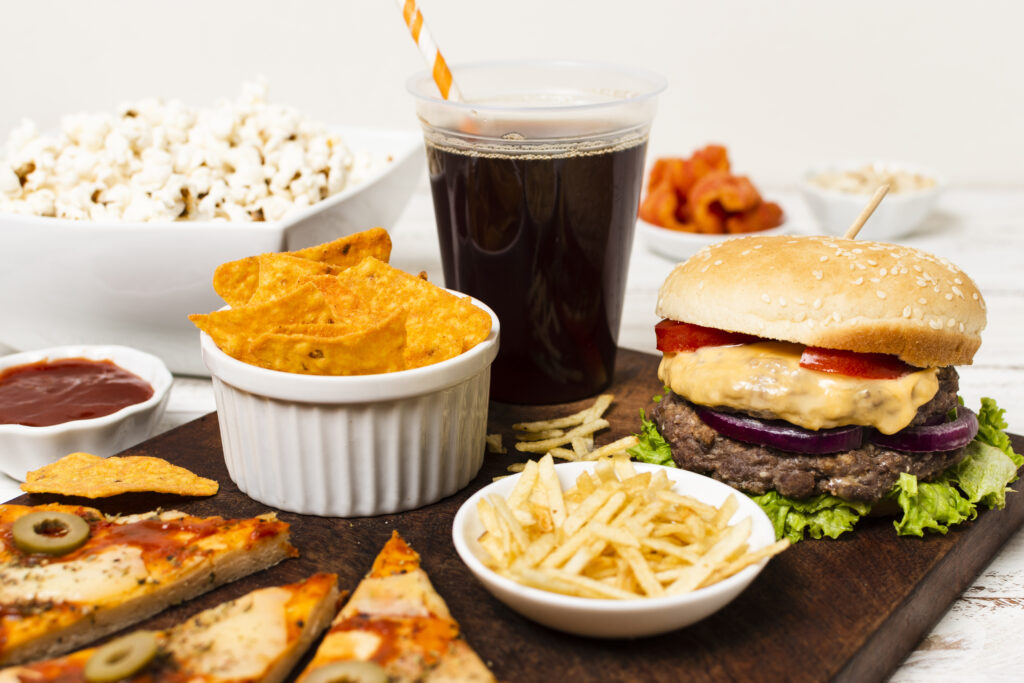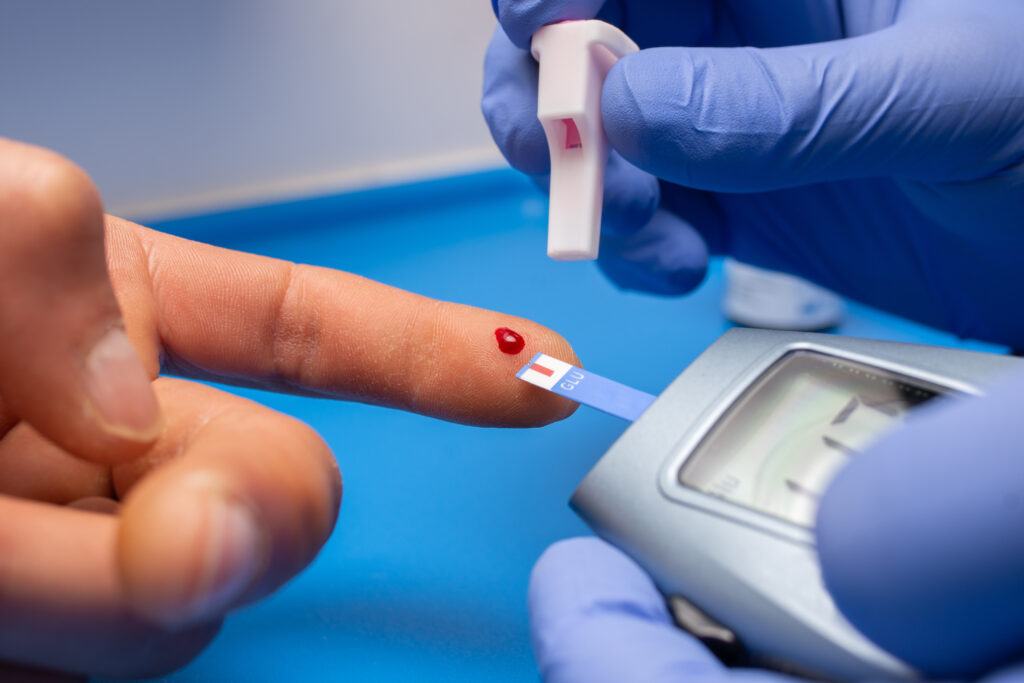Ultra-processed foods worsen sleep disruptions and impair blood sugar regulation, particularly in diabetics. Chronic insomnia, influenced by dietary habits, can significantly impact overall health, emphasizing the importance of managing both insomnia and diabetes. This article explores the connection between chronic insomnia, ultra-processed foods, and diabetes, providing insights into improving sleep quality and managing blood glucose levels through dietary changes.
Understanding Ultra-Processed Foods and Their Role in Sleep Disorders
Defining Ultra-Processed Foods and Common Examples
Ultra-processed foods are the fancy way of saying “highly processed stuff that barely resembles real food.” Think of those colorful packages with a list of ingredients longer than your grocery list. We’re talking about your favorite sugary cereals, neon-colored snacks, and mystery meat nuggets. Basically, if it doesn’t look like it came from Mother Nature, it’s probably ultra-processed.


Effects of Ultra-Processed Foods on Sleep Quality
While those ultra-processed goodies may taste like a party in your mouth, they’re definitely not throwing a party for your sleep. Research indicates that chowing down on these foods, especially close to bedtime, can disrupt your sleep patterns, making it harder to catch those precious Z’s. So, that late-night snack attack might be more detrimental to your sleep than you think.
The Connection Between Chronic Insomnia, Ultra-Processed Foods, and Diabetes
Exploring the Interplay of Chronic Insomnia, Diet, and Diabetes
It’s like a twisted trio – chronic insomnia, ultra-processed foods, and diabetes – each feeding into the other’s mischief. The lack of sleep can mess with your cravings, leading you straight into the arms of those ultra-processed temptations, which, in turn, can wreak havoc on your blood sugar levels. It’s a vicious cycle that can make managing diabetes feel like a never-ending battle.

Impact of Ultra-Processed Foods on Insulin Sensitivity and Sleep Patterns
Not only do ultra-processed foods mess with your sleep, but they also have a sneaky way of playing with your body’s insulin sensitivity. This means your blood sugar levels may go haywire, making it even harder to get a good night’s rest. So, that bag of chips might be causing more trouble than just a guilty snack attack – it could be disrupting your diabetes management and sleep schedule too.
Effects of Ultra-Processed Foods on Sleep Quality in Diabetic Patients
Studies Showing the Correlation Between Ultra-Processed Foods and Sleep Disturbances in Diabetic Patients
Research has shown that the love affair between ultra-processed foods and disrupted sleep isn’t limited to the general population. Diabetic patients seem to be particularly vulnerable to the effects of these processed goodies on their sleep quality. It’s like adding fuel to the fire when you’re already trying to juggle blood sugar levels like a blood sugar ninja.

Specific Mechanisms by Which Ultra-Processed Foods Affect Sleep in Diabetes
So, how exactly do ultra-processed foods sabotage sleep in diabetic patients? While the exact mechanisms are still being unraveled, it seems that the combination of wonky blood sugar levels and disrupted insulin sensitivity caused by these foods can throw a serious wrench in your sleep patterns. It’s like a domino effect – one thing leads to another, and before you know it, you’re stuck in a cycle of sleepless nights and rollercoaster blood sugars.
Strategies for Improving Sleep and Managing Diabetes through Dietary Changes
Recommendations for Enhancing Sleep Quality through Dietary Modifications
Tired of counting sheep? Swap out those late-night snacks for sleep-friendly options like nuts, fruits, or a soothing cup of chamomile tea. Your body will thank you as you drift off into dreamland.
Benefits of a Nutrient-Dense Diet on Sleep and Sugar Control
Picture this: A plate full of colorful veggies, lean proteins, and whole grains. Not only will this kind of diet help you catch those Z’s easier, but it can also work wonders in keeping your blood sugar in check throughout the day.

Importance of a Balanced Diet in Promoting Healthy Sleep Patterns for Diabetic Individuals
Why choose between a good night’s sleep and stable blood sugar levels when you can have both? By focusing on a well-rounded diet that nourishes your body and mind, you can tackle both insomnia and diabetes like a pro.
Ideal Dietary Components for Optimal Sleep and Glucose Regulation
Think of your meals as a symphony – each nutrient playing its part in creating a harmonious balance for your sleep and glucose levels. From fiber-rich foods to omega-3 fatty acids, your plate can be your secret weapon in the battle against sleepless nights and erratic blood sugar spikes.

Introducing the Sugar Defender
In this fight against insomnia and diabetes, imagine having a dedicated ally on your side—introducing the Sugar Defender! This revolutionary product is designed to help manage blood sugar levels and improve sleep quality through a blend of natural ingredients known to support both metabolic health and restful sleep.
How Sugar Defender Works
Natural Ingredients: Contains a mix of fiber-rich components and herbs known to stabilize blood sugar levels and promote relaxation.
Supports Sleep Hygiene: Formulated to complement good sleep practices by reducing stress and enhancing overall sleep quality.
Easy to Integrate: Incorporates seamlessly into your daily routine, making it easier to stick to a holistic health management plan.
By incorporating Sugar Defender into your diabetes management regimen, you can take proactive steps to improve your sleep, stabilize blood sugar levels, and enhance your overall well-being. With the right combination of dietary choices, exercise, sleep hygiene, and Sugar Defender, you’re not just managing diabetes—you’re mastering it, ensuring a healthier, more balanced future.
Conclusion:
Recognizing the impact of chronic insomnia and ultra-processed foods on diabetes underscores the importance of adopting a holistic approach to health management. By making informed dietary choices and prioritizing healthy sleep habits, individuals with diabetes can enhance their overall well-being and quality of life. Taking proactive steps to address sleep disturbances and improve dietary patterns can contribute to better sleep quality, more stable blood sugar levels, and ultimately, a healthier future for those managing diabetes.
Countries Prohibiting Ultra-Processed Foods
Some countries have taken steps to limit or prohibit ultra-processed foods due to their negative health impacts, including:
Chile: Known for its strict food labeling laws, Chile has implemented measures to reduce the consumption of ultra-processed foods. The country has mandatory front-of-package warning labels on high-calorie, high-sugar, and high-sodium foods, along with restrictions on advertising these products to children.
Brazil: Brazil’s dietary guidelines emphasize the consumption of whole and minimally processed foods while discouraging the intake of ultra-processed foods. The guidelines aim to promote healthier eating habits and reduce diet-related diseases.
France: France has introduced policies to reduce the consumption of ultra-processed foods, including a tax on sugary drinks and regulations to limit the marketing of unhealthy foods to children. The country encourages the consumption of fresh, whole foods as part of a balanced diet.
These countries recognize the detrimental effects of ultra-processed foods on health, particularly concerning obesity, diabetes, and other chronic diseases, and have implemented policies to encourage healthier dietary choices.
